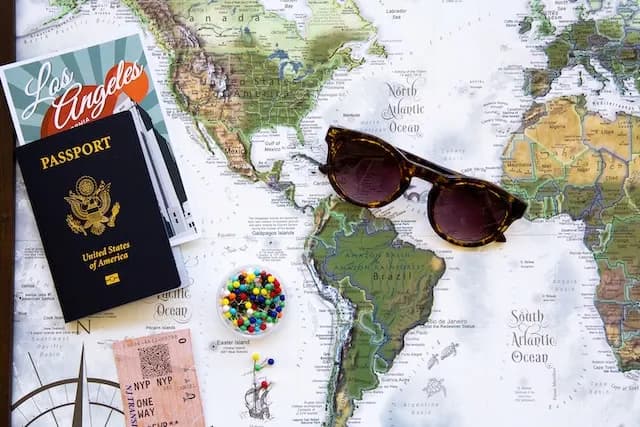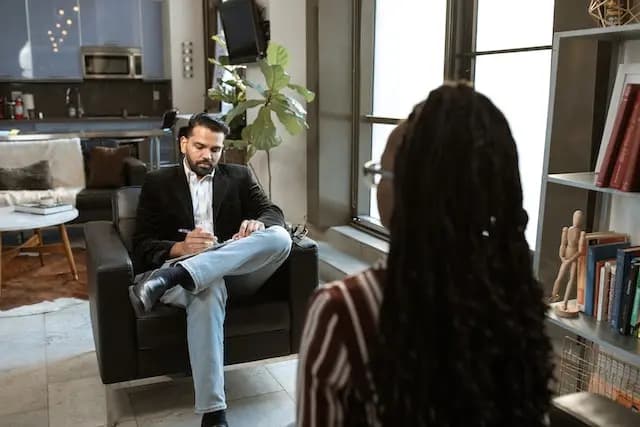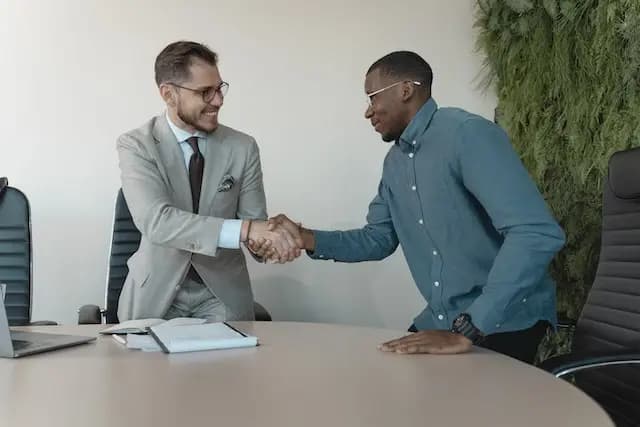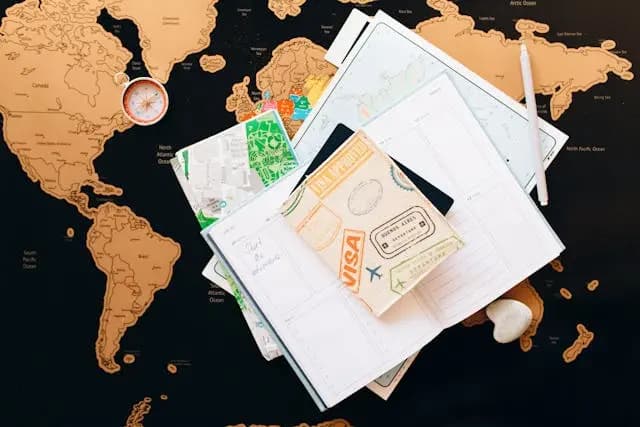B1/B2 Visa Interview: Top 20 US Visitor Visa Questions
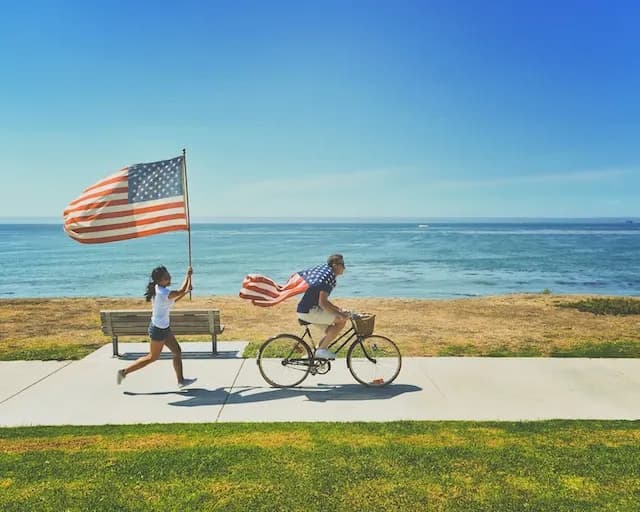
Key Highlights
- Know the purpose of your trip and be specific.
- Provide accurate details about your travel plans.
- Carry relevant documents like your job, financial proof, and family ties.
- Answer clearly and avoid unnecessary details.
- Don’t be nervous or rush through the questions.
Introduction:
Welcome, future travelers, to the ultimate guide on cracking the US Tourist/Visitor Visa interview! As you embark on your journey to the land of dreams, it's important to prepare for the face-to-face interview that determines your visa approval. Fear not, as we've compiled the top 10 most common questions asked during US Tourist Visa interviews, along with expert tips and sample answers to help you impress the consular officer and secure your ticket to the US.
Why Do US Visa Officers Ask Questions in Tourist Visa Interview?
When you step into the US visa interview room, you may wonder why the visa officers ask a barrage of questions. Well, there's a method to this seemingly intense process. Visa officers have a crucial responsibility of determining your eligibility and assessing the genuineness of your intentions for US travel. Through their questions, they want to understand your purpose of travel, the duration of your stay, your ties to your home country, and your ability to cover your expenses financially. Their goal is to ensure that you meet the requirements of the US tourist (B1/B2) visa category you're applying for and that you will adhere to the US immigration laws. So, while it may feel daunting, remember that the visa officers are there to make fair assessments and help facilitate your travel aspirations within the legal framework.
1. Why do you want to travel to the US?
Tip: Be sincere and specific about your purpose. Discuss the aspects of American culture or places you find interesting and why they appeal to you. If possible, add personal anecdotes or experiences that have shaped this interest.
Sample Answer: I've always been fascinated by American history and culture, and I would love to explore this firsthand by visiting landmarks like the Statue of Liberty and museums like the Smithsonian.
Reasoning: Honesty is the best policy. The visa officer wants to understand your interest in the US. Your desire to experience American culture demonstrates genuine curiosity and aligns with the purpose of a B2 Visa.
2. Have you travelled to other countries before?
Tip: Share a detailed account of your travel history. Include the duration of your stay, purpose of travel, and experiences respecting immigration rules of the countries visited. This will build a portrait of you as a responsible traveller who respects international laws.
Sample Answer: Yes, I have travelled to the United Kingdom, France, and Japan. Each trip was for tourism and lasted approximately two weeks.
Reasoning: This gives the interviewer an idea of your travel history and indicates your compliance with immigration rules in other countries.
3. What is your occupation?
Tip: To answer "What is your occupation? or Why is your income source?", you have to be clear about your current employment status and role. If possible, elaborate on your responsibilities, your tenure, and the industry you are working in. This can paint a fuller picture of your professional life, showcasing stability and commitment.
Sample Answer: I am a software engineer working with XYZ corporation for the past five years.
Reasoning: Having a stable job back home is a strong tie, indicating you're likely to return after your visit.
4. How long do you plan to stay in the US?
Tip: Align your planned stay with your visit's purpose. Explain the rationale behind the duration. For instance, if you plan to visit several cities or attend a special event, factor that into your response.
Sample Answer: I plan to stay for three weeks to fully enjoy my vacation and visit the major tourist spots.
Reasoning: A reasonable timeframe for your visit shows you respect the visa conditions and plan to leave before your visa expires.
5. Where will you stay in the US?
Tip: Provide specifics about your accommodations. Whether it's a hotel or a friend's place, give details like the address, the duration of stay at each location, and why you chose those particular accommodations.
Sample Answer: I have a reservation at the Hilton in New York for the first week and then an Airbnb booked in Los Angeles for the remaining two weeks.
Reasoning: Concrete accommodation plans exhibit your responsibility and planning abilities, which are positive indicators to visa officers.
6. How will you sponsor you trip?
Tip: To answer "How will you sponsor your trip?" or "Who is your sponsor for this trip?", mention your financial stability by talking about your savings, salary, or other income sources such as real estate and investments. Explain how you've budgeted for this trip, considering all possible expenses including travel, accommodation, food, attractions, and emergency funds. Or, if you have a company or other people sponsoring your trip, mention their financial details.
Sample Answer: I have been saving for this trip over the past two years and it is around $10,000. Plus, I have a steady income of $1500 from my job and two apartments building, which will cover the cost of this trip without financial strain.
Reasoning: This shows your financial self-sufficiency and reassures that you will not seek employment during your stay, which is against B2 Visa rules.
7. Who will take care of your home/job while you're away?
Tip: Indicate that you've made responsible arrangements for your absence. Share details of who will manage your responsibilities and how they're prepared to do so, further showcasing your planning skills and intention to return.
Sample Answer: My neighbour and other family members has agreed to check on my house regularly, and I've delegated my job duties to my co-worker during my absence.
Reasoning: Demonstrating arrangements back home affirms your intention to return.
8. Do you have relatives in the US?
Tip: Be upfront if you have relatives in the US. However, clarify your main purpose of the trip, underlining that while you may visit them, your primary aim is tourism or business, not family reunions.
Sample Answer: Yes, my cousin lives in Florida, but my primary purpose for this trip is tourism, not to visit family.
Reasoning: Having relatives in the US might raise concern about your intent to stay longer. You have to clarify your intentions and priority of your visit.
9. What are your plans after the visit?
Tip: Strongly stress your intention to return home. Talk about your commitments at home—professional, personal, or community-related—that you need to attend to post your visit. This reflects your rootedness in your home country.
Sample Answer: After the visit, I plan to return to work at ABC company and share my experiences with my friends and family.
Reasoning: This shows you have compelling reasons to return home and aren't planning to overstay your visa.
10. Why should we grant you a US Visitor Visa?
Tip: This questions gives you a chance to present a summary of your intentions. Highlight your respect for immigration laws, your well-planned travel itinerary, strong ties to your home country, and your anticipation to experience and learn from the US. Make it clear that you're a genuine tourist/business visitor who will uphold the terms of the B1/B2 Visa.
Sample Answer: I want to experience the culture, sights, and sounds of the US and share these experiences back home. I assure you that I'll abide by the rules and conditions of the B1/B2 Visa.
Reasoning: This answer demonstrates your respect for immigration laws and reiterates your intentions to be a genuine tourist.
11. Have you booked your flight tickets?
Tip: While it’s not mandatory to book tickets before the visa interview, having a clear idea of your intended travel dates can show that you are serious about your trip. Be ready to explain your travel plans.
Sample Answer: I haven’t booked my tickets yet, but I plan to fly in early December, right after my work leave begins. I will book once my visa is approved.
Reasoning: This shows you’re mindful of the visa process and not prematurely committing to non-refundable travel plans.
12. Can you provide details about your itinerary?
Tip: Be ready to share specific places you plan to visit and any activities or events you’re attending. This helps show that your trip is well-organized.
Sample Answer: I plan to spend five days in New York to visit Central Park, the Metropolitan Museum of Art, and the Statue of Liberty. After that, I’ll spend a week in Los Angeles to visit Disneyland and the Griffith Observatory.
Reasoning: A detailed itinerary conveys that you are a genuine tourist with a clear plan.
13. What ties do you have to your home country?
Tip: Strong ties to your home country—like family, employment, or property—demonstrate that you have reasons to return and don’t intend to overstay your visa.
Sample Answer: I have a permanent job at XYZ company, where I’ve worked for seven years. I also live with my parents, who I take care of.
Reasoning: This reassures the visa officer that you have obligations and a stable life to return to.
14. Do you have any criminal history?
Tip: Be honest about any past incidents, but explain if it’s minor and does not affect your ability to follow laws.
Sample Answer: No, I do not have any criminal record. I have always respected the laws of my country and the countries I’ve visited.
Reasoning: Being honest builds trust with the officer, and a clean record supports your application.
15. How did you choose the places you want to visit?
Tip: Show personal interest or prior research in your chosen destinations to reflect genuine intent as a tourist.
Sample Answer: I’ve always been fascinated by the culture and landmarks of the US, especially places like the Grand Canyon and Hollywood, which I’ve read about and always wanted to visit.
Reasoning: This shows you’ve planned your trip with purpose, beyond just having family or friends in the US.
16. Are you traveling with anyone?
Tip: If you’re traveling alone, state that clearly. If with others, mention their relation to you and their travel status.
Sample Answer: Yes, I am traveling with my spouse, who is also applying for a B2 visa, so we can enjoy our vacation together.
Reasoning: This shows transparency and that you have a clear travel plan.
17. Have you been denied a US visa before?
Tip: If you have been denied a visa before, explain what has changed since then to improve your eligibility.
Sample Answer: Yes, I was denied a visa two years ago because my financial documents weren’t sufficient. Since then, I’ve saved up and now have enough funds to support my trip.
Reasoning: A straightforward explanation of past denials shows that you have addressed the previous concerns.
18. What will you do if your visa is denied?
Tip: Demonstrate that you have other options or that you’re prepared to reapply, but also highlight your confidence in your current application.
Sample Answer: If my visa is denied, I will take time to review any issues, improve my application, and reapply when I’m better prepared.
Reasoning: This shows resilience and a willingness to follow proper channels, rather than attempting to circumvent rules.
19. What do you do in your free time?
Tip: Mention hobbies or activities that align with a tourist profile, like traveling, photography, or cultural interests.
Sample Answer: In my free time, I enjoy traveling to new places, learning about different cultures, and capturing beautiful landscapes with photography.
Reasoning: This aligns with your intention to travel for leisure and exploration.
20. What will you do if you run out of money during your trip?
Tip: Explain any backup plans, such as access to emergency funds or credit cards, that ensure you won’t need to find illegal work.
Sample Answer: I have set aside an emergency fund, and I also have a credit card with a $5,000 limit in case I need additional funds.
Reasoning: This reassures the officer that you won’t face financial hardship and will follow visa rules.
Conclusion:
Getting your US Tourist Visa interview can be intimidating, but with proper preparation and the right mindset, you'll be ready to take it on with confidence. Remember, the visa officer wants to see genuine intent to enjoy the US as a tourist or or business travel and a strong commitment to respecting the legal terms of your B1/B2 Visa.
We hope that with this guide, your path to "US Tourist / Business Visa" is clearer and simpler. Bon Voyage!
Need more info? Check out these B1/B2 blogs below!
A Step-by-Step Guide to US Tourist (B1/B2) Visa Application
7 Mistakes NOT to Make in Your US Visa Interview
Transforming Tourist B1/B2 Visa to Green Card: Is it Possible?
Have Questions About This Topic?
Join our community to get personalized advice and share experiences with others going through similar visa processes.
